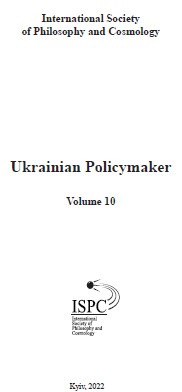Integration and the European Security Solution: Overcoming the Security Dilemma
Integration and the European Security Solution: Overcoming the Security Dilemma
Author(s): Mykola GnatiukSubject(s): Diplomatic history, Political history, International relations/trade, Security and defense, EU-Accession / EU-DEvelopment, Peace and Conflict Studies
Published by: Международное философско-космологическое общество
Keywords: integration; security; security dilemma; European security and defense mechanism;
Summary/Abstract: One of the key drivers of European integration has been the transformation of Europe from a “continent of war” to a “continent of peace.” This goal requires a significant alteration to the relations between nation-states that have long determined European politics and resulted, among other things, into two world wars. For more than seven decades, the integrated Europe under the framework of the European Union has seen no conflicts among its members. However, there is a lack of consensus among the scientific community that integration alone can lead to more security even more – for integration to occur, some security arrangements are required. In this case, security is as an independent variable, integration, which is a dependent one, facilitates trust among units of the integrated community of nationstates. The article reviews the case of integration in Europe after the Second World War, especially the security environment and discourse on rebuilding relations among nation-states in Europe. In the new post-war European political landscape, a nation-state as a primary unit of political relations had survived, no surprise, but returning to a business as usual among states was impossible. Europe got an outside security pacifier, but it did not mean that the security dilemma between leading European states had been overcome. European multilateral mechanism in the form of the European Coal and Steel Community (ECSC) had only partially mitigated the security dilemma. The incorporation of Germany in the European security and defense mechanism based on the North Atlantic Treaty opened the way to new integration projects and eventually to “ever closer union” in The Treaty of Rome. The connection between security and integration has led to the special nature of the integration process based on cooperation among nation-states with the presence of external security actors. This also explains the almost civilian nature of the E.U. and a taboo on military security cooperation, which has still been defining European integration.
Journal: Ukrainian Policymaker
- Issue Year: 10/2022
- Issue No: 10
- Page Range: 18-26
- Page Count: 9
- Language: English

